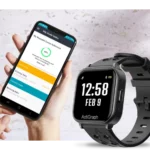With quickly evolving technologies, electronic Patient Reported Outcomes (ePROs) can now be administered in a variety of ways. If ePRO self-completion via a Provisioned Device (PD) remains the most frequent solution, more and more studies adopt a Bring Your Own Device (BYOD) approach, which brings flexibility and reduces the patient’s burden. Alternative options include ePRO completion on a web browser via WebCOA, or a telephone or telemedicine interview. Described in the past as potentially generating bias, the interview mode has returned during the pandemic as a valuable alternative. By allowing the collection of ePROs by trained personnel during a remote interview, the interview mode constitutes an additional data entry mode when clinical trial participants cannot go to the study site for a scheduled visit.
When to choose an Interview mode?
We recommend choosing an interview administration mode in specific circumstances when:
- The medical condition (eg, visual impairment generated by diabetic retinopathy or macular degeneration) prevents the patient from completing a questionnaire by themself.
- The study has an extended follow-up phase (eg, oncology clinical trials), provisioned devices would be too expensive, and BYOD is not an option.
- WebCOA back-up mode is not the best back-up solution for a given trial (eg, patients have no access to a computer).
- The Observer does not feel comfortable with completing the ObsRO (eg, pediatric study with stressed parents or an elderly observer population lacking technological skills). In such situations, the interviewer will interview the Observer and will complete the questionnaire on their behalf.
What is the value of the Interview mode?
- Adds flexibility to protocol schedules, which has been very useful when sites have not been in a position to maintain on-site visits.
- Increases data collection, as it allows ePRO data to be collected when a distant unsupervised data collection mode is not active in a study, or WebCOA is not a suitable option.
- Adds a new data entry option to support Decentralized Clinical Trials (DCTs). Although clinical trials are evolving more and more towards a decentralized model, some situations won’t allow decentralized aspects to be 100% digital: the Interview mode will fill those gaps.
With careful training and monitoring of interviewers to minimize any interview bias, this mode of administration also has the value of increasing data quality as compared to paper back-up solutions. Studies showed that the telephone-administration mode of certain questionnaires, such as the Short Form Health Survey Questionnaires (SF-36) or the Graded Chronic Pain scale (GCPS) is equivalent to and as valid as the self-administered mode.
Where to be cautious when implementing an Interview mode strategy?
- Keep control of interview utilization: Kayentis interview mode solution is designed so that it is planned, it is timed during set up, and all technical aspects are under control including complete traceability of the interviewers and interviewees. Also, we ensure that the utilization of interview mode is audit trailed and questionnaires flagged as being interview-administered. As not all patient questionnaires have a validated version suitable for interview administration, teams must ensure the right questionnaire version is used and activated at the time of study set-up. Keeping control of the interview mode activation will prevent wrong questionnaire version from being used, whilst allowing high quality data to be collected.
- Anticipate potential workload for site staff: appropriate training on how to perform the interview will be necessary at the site level to avoid any interview bias. Also, for questionnaires with a substantial number of items, the time required for its completion will need to be anticipated.
- Monitor the interview mode utilization and be sure to describe the reasons why it has been selected as an appropriate mode of data collection:
Kayentis interview mode can be implemented either as optional or as the main administration mode:
– Optional interview mode: Site team member chooses either to initiate an on-site ePRO/eObsRO for patient/observer self-administration, or to complete it by themself during a remote interview with the patient/observer.
– Interview mode as the main administration mode: in this mode, on-site ePRO/ObsRO can be completed only by an authorized site team member during an interview.
Note that within a given study, it is possible to mix both self-administered ePROs/eObsROs with interview administered questionnaires, so that the administration mode is adapted to the stage of the clinical trial. For instance, on-site completion can be the only available administration mode during screening visits, whilst optional interview mode can be used during the treatment phase, and interview mode then becomes the main administration mode during the follow-up phase of long-lasting clinical trials.
Although the Interview mode is not a suitable back-up option for eDiaries, as the frequency of diary administration risks a heavy burden for site staff and patients, it remains an interesting avenue to add flexibility to eCOA data collection in clinical trials. At Kayentis, we are convinced that multiplying the options for data collection is necessary to support the industry switching to a new clinical trials paradigm.













